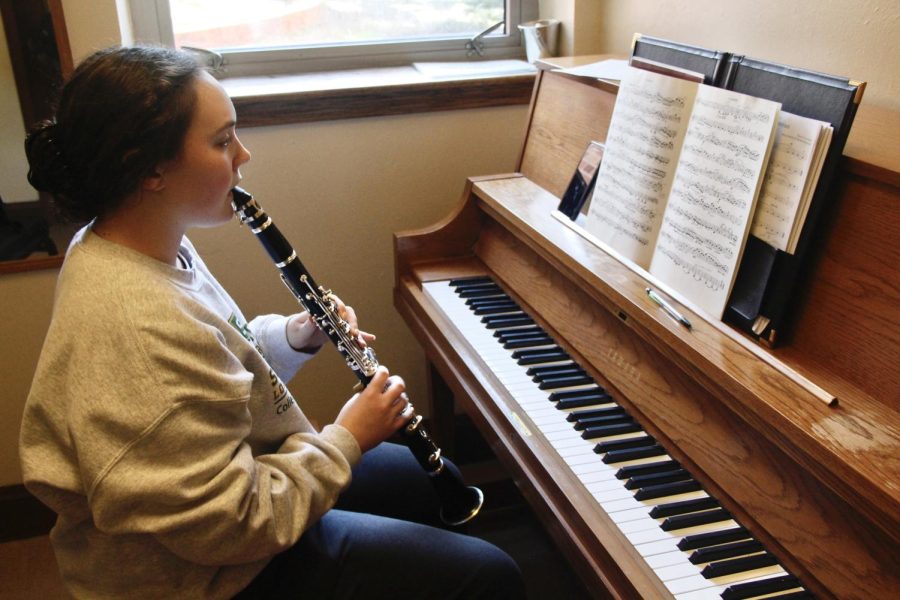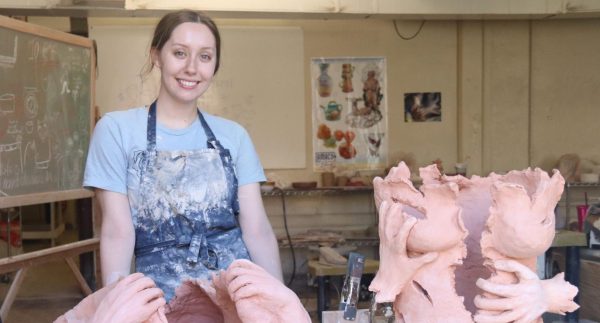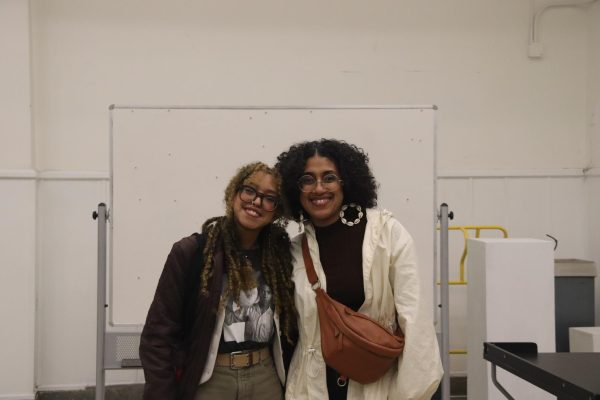How do SLU’s music majors practice?
Erin Hicks, a sophomore in the instrumental performance program, rehearses clarinet in a Pottle practice room.
The Pottle Music Building serves many purposes for SLU’s music students. The most crucial purpose the building provides for every music major is a space for practice.
Every day, music students flow in and out of Pottle to rehearse with their instruments. Practicing is a vital part of success in SLU’s music program, especially when it comes to performance majors.
Erin Hicks, a sophomore in the instrumental performance program for clarinet, shared practice is of utmost importance for her major.
“Practicing is a must – at least every day and usually more time on the weekends. If you’re a music major and you don’t practice, you’re not going to be very successful,” Hicks said.
Time management is another critical part of being a music major, as some balance needs to be achieved between class studies and instrumental skill.
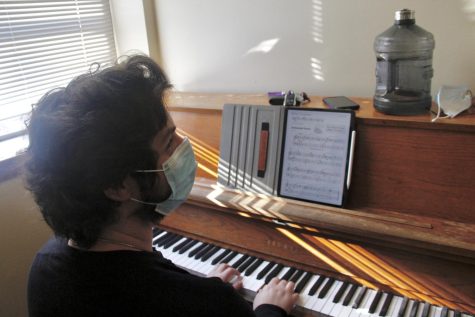
Brayden Guitreau, a freshman majoring in vocal music education who participates in university choir and concert choir, said that he uses his breaks as time for practice.
“It will usually be around the time classes end. If not, I have breaks on Mondays and Wednesdays,” Guitreau said.
Along with the practice rooms in Pottle, there are other areas where students can practice. These include the band room, recital hall and auditorium.
Students working to hone their skills on these instruments must dedicate their time to it. Along with the students, faculty in the music department also understand the importance of practicing.
Victor Correa-Cruz, who is the symphony orchestra director and assistant violin professor, agrees that practicing is a critical part of majoring in music.
“If you are majoring in performance, it’s the most important part of your studies. Because you have to get to a level where you can compete professionally to get a job in performing or teaching,” Correa-Cruz said.
Music students must also prioritize different aspects of practicing and ensure they are focused at the task at hand.
Correa-Cruz also said that with the internet, music students have a lot of resources available to them. This has its upsides and downsides.
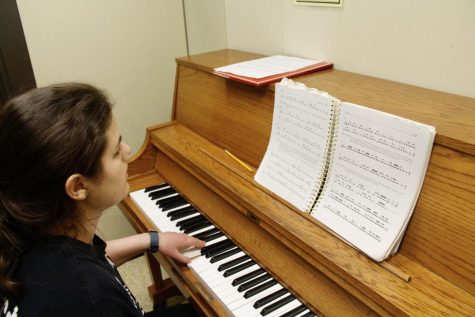
“Now, you have a lot of information at hand in your computer or your cell phone, and in that sense it’s easier than it used to be because you can immediately have all the materials you need. But that can be more distracting too because sometimes we waste time looking at things and we don’t know when to stop,” Correa-Cruz said.
Music majors have a lot on their plates when it comes to preparing to perform in a professional setting – from finding an appropriate time to practice, balancing practice with their studies and managing their resources for maximum success.
In summary, the students in the music program must utilize a variety of resources for practice, dedicate time every day to practicing, and manage their time appropriately to be successfully prepared for a music career.
Your donation will support The Lion's Roar student journalists at Southeastern Louisiana University.
In addition, your contribution will allow us to cover our annual website hosting costs.
No gift is too small.

Cade Roland is a Finance major from Lafayette, LA. He joined the Lion's Roar in February of 2022. He graduated from Early College Academy in 2021. Outside...


